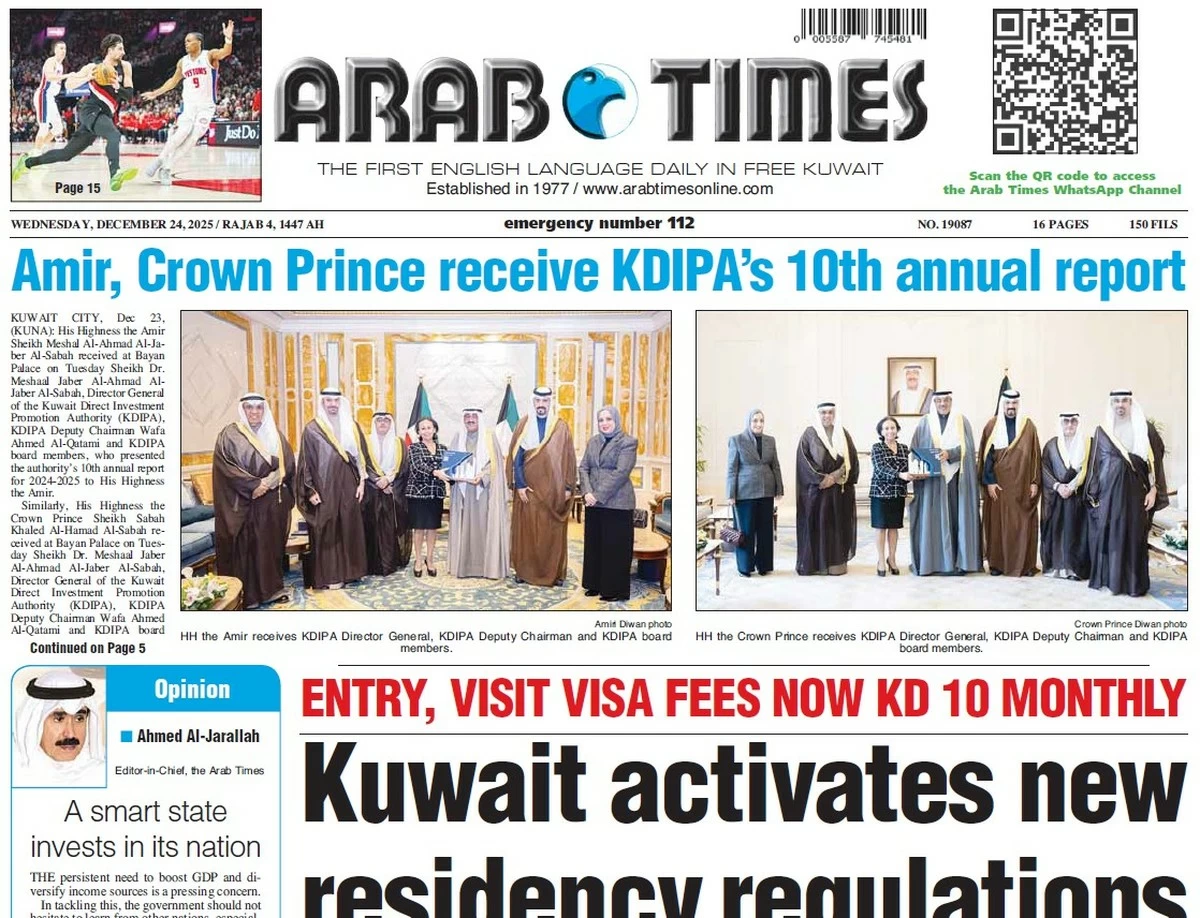05/05/2025
05/05/2025
On this occasion, I recall that the U.S. President Donald Trump issued an executive order during his first term to emphasize “skills over academic certificates.” He explained, “We seek candidates with competence and knowledge, rather than simply recruiting based on academic credentials.” In advanced countries like Germany, France, and the UK, experience and skills are prioritized over academic qualifications, as they contribute more directly to national development.
Another observation: Why is a resident or citizen prevented from obtaining a visit visa for a family member if they are capable of supporting them and providing return plane tickets?
Why is it necessary to purchase the ticket from a domestic airline, while many foreign airlines are closing their offices in Kuwait?
During the years of closure, due to the shortsighted vision of some officials, Kuwait lost a great deal of expertise. The decision that restricted the renewal of work permits only to highly qualified individuals led to many skilled workers leaving the country.
Meanwhile, the Gulf states opened their doors to these professionals, welcomed them, and benefited from their expertise and knowledge of local customs. Here, I am reminded of the saying: “Kuwait educates and trains, then exports skilled labor to other countries.” As a result, Kuwait has regressed in many areas, and its economy continues to suffer. Socially, these flawed decisions, often influenced by residency traders, have turned Kuwait into a community of bachelors. In contrast, GCC countries have worked to resolve this issue by allowing business and family visits. In some cases, individuals can travel multiple times on the same visit visa. Gulf countries have also made it easier for expatriates to bring their families without complications.
Other countries have addressed the problem of “loose labor” (freelancers) by sponsoring workers and collecting fees that would otherwise go to residency traffickers. We must capitalize on the success of the 26th Gulf Cup, when Kuwait welcomed thousands of Iraqis in a wonderful experience. They stayed in hotels, purchased goods, and returned home without a single violation.
These visits strengthened friendship and ties among nations. In the past, some GCC countries adopted strict measures for visit visas. Today, many allow visas to be issued electronically. For instance, Saudi Arabia now issues a visit visa in just three minutes. As a result, Saudi Arabia has millions of visitors who contribute significantly to its economy. Finally, when a Kuwaiti company applies for a temporary business visit, why is it required that the visitor holds a university degree? They are coming to Kuwait for a fixed period for a specific business assignment, not for personal reasons like marrying the company owner’s daughter. I reiterate that I present these observations to the Deputy Prime Minister and Minister of Interior, in the hope that Kuwait can stay in line with the GCC’s trend of openness.



